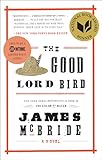Five-Carat Soul, James McBride’s new short story collection, is an eclectic and delightful follow-up to his award-winning novel The Good Lord Bird. It is also a collection that has been patchworked, and smoothed together over 30 years. Mr. P & the Wind, the novella or long story of the collection was inspired by a trip he took to the zoo with his nephews in 1986, and “The Christmas Dance” is a tale that reflects and adds to his WWII novel, The Miracle of St. Anna. An intertwined set of four stories about young children who play in “The Five-Carat Soul Bottom Bone Band” addresses the social and communal consequences of systemic racism, as an Asian-American store owner is racially scapegoated for the murder of a young black boy, and another young black man, by the nickname of Blub, is sentenced to death for being in the wrong place at the wrong time.

 The crown jewel of Five-Carat Soul, a laugh-out-loud story and perhaps one of the best of the early 21st century, is “The Under Graham Railroad Box Set.” A satirical and searing indictment of American racism, the story puts an older liberal white toy collector from New York at the center of a quest to find the lost toy train set of General Robert E. Lee’s son. He finds it in the home of a poor black family where he is told he can have the train set for free because it has no religious value to the Hart family. He becomes obsessed with the father, Rev. Spurgeon Hart, who refuses the millions of dollars the train is worth for the value of his religious movement, and the many menial part-time jobs he works to pay for his family’s expenses. This religious cause turns out to be Rev. Spurgeon’s great nightclub performances as rap artist “Dr. Skank” at “The Tonk: the funkiest, nastiest, skankiest, hip-hop and R’n’B club in New York City!”
The crown jewel of Five-Carat Soul, a laugh-out-loud story and perhaps one of the best of the early 21st century, is “The Under Graham Railroad Box Set.” A satirical and searing indictment of American racism, the story puts an older liberal white toy collector from New York at the center of a quest to find the lost toy train set of General Robert E. Lee’s son. He finds it in the home of a poor black family where he is told he can have the train set for free because it has no religious value to the Hart family. He becomes obsessed with the father, Rev. Spurgeon Hart, who refuses the millions of dollars the train is worth for the value of his religious movement, and the many menial part-time jobs he works to pay for his family’s expenses. This religious cause turns out to be Rev. Spurgeon’s great nightclub performances as rap artist “Dr. Skank” at “The Tonk: the funkiest, nastiest, skankiest, hip-hop and R’n’B club in New York City!”
In this story—and many of the other stories—McBride makes the blunt statement that in American politics, society, and culture, black bodies are expendable. They contribute to American culture, but they do not receive reparation or political and economic capital in return from the body politic. When the toy collector chooses to sell the priceless railroad set, he fails to think of anyone outside himself. The buyer, an ancestor of an old and storied Confederate family, locks the toy train in a Swiss vault, and thus American history is literally locked away rather than possibly being displayed in a national museum or elsewhere. McBride’s fantastical surrealism expands the possibility for readers to consider the meaning of freedom in a mess of complex capitalist, racial, and religious dynamics.
“Father Abe” and “The Fish Man Angel” are two other stories that address history through Abraham Lincoln’s encounters with black men. In the former, the ceremony surrounding his visit to a couple of infantry divisions, one being the 9th Colored Infantry Regiment of Louisiana, allows for two black soldiers to escape north to freedom. In the latter, Lincoln, upon going to the stables to visit his dead son’s horse, overhears a conversation between the stable-boy and his son about a slave tale told by the son’s dead mother about “A Fish Man Angel” that would set them free. This is a reverie, an assurance that one day the mother’s dream would come true. It does, as at the end of the tale the son rides next to the stable-boy turned coachman of President Lincoln’s carriage.
Mr. P & the Wind, although a bit of an add-on to an already excellent collection, is a feather in Mr. McBride’s surrealist cap, envisioning a zoo with animals who don’t talk with words, but with thoughts. There is even a vision of the world as reincarnation with “Wind” being the supreme being, and tadpoles being the bottom of the food chain one works up to over many, many years. His characters carry a vibrancy and a layered density. James McBride is one of a handful of American fiction writers who has influence both on American literature, and on the larger cultural awareness of critical revisionist history.
The post The Stories of James McBride appeared first on The Millions.
from The Millions http://ift.tt/2EWPbI2
Comments
Post a Comment